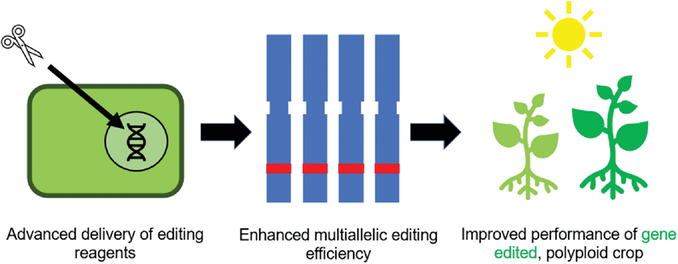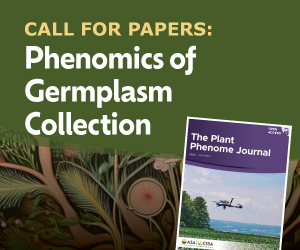Progress and Prospects of Targeted Mutagenesis in Polyploid Crops

Polyploidy has contributed to plasticity and growth vigor of many plant species. However, the complexity and heterozygous nature of polyploid genomes complicate breeding and genetic studies. With the advent of genome‐editing technologies, targeted modifications to polyploid genomes are now possible within a single generation while retaining the genetic backgrounds of elite cultivars. Most applications of genome‐editing technology have generated loss‐of‐function mutations. The higher numbers of homeologous gene copies present in polyploids require highly active and precise editing reagents to produce plants that display the desired phenotype.
Researchers at the University of Florida recently published a review synthesizing key achievements, challenges, and future directions of targeted mutagenesis in polyploid plants. Highlights of gene‐editing‐mediated trait development in polyploids include improving yield, disease resistance, and end‐use quality while impediments include target gene identification and poor mutagenesis efficiency. The review discusses strategies to improve knockout efficiency and outlines desirable improvements in gene‐editing reagent delivery, which will harness the full potential of gene editing in polyploids.
Many of the world's most important crops are polyploid, and targeted mutagenesis will continue to be an essential tool used to meet future demands and ensure global food security.
Adapted from May, D., Paldi, K., & Altpeter, F. (2023). Targeted mutagenesis with sequence‐specific nucleases for accelerated improvement of polyploid crops: Progress, challenges, and prospects. The Plant Genome, 16, e20298. https://doi.org/10.1002/tpg2.20298
Text © . The authors. CC BY-NC-ND 4.0. Except where otherwise noted, images are subject to copyright. Any reuse without express permission from the copyright owner is prohibited.









